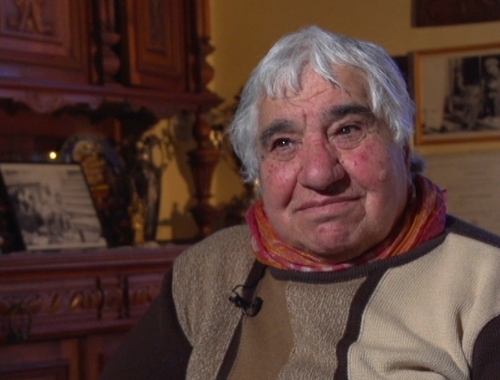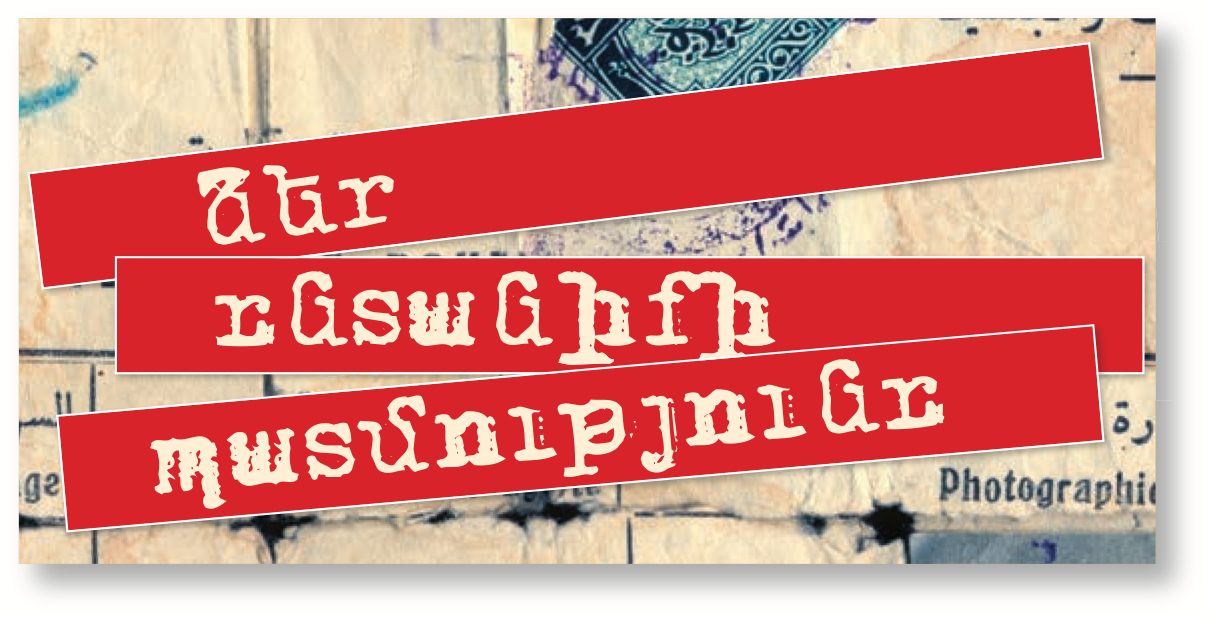 Immigrated from France in 1947
Immigrated from France in 1947
Madeline Nirisian-Choulfian
They advised my father, “Sahag, you have five children. It’s a good country. Go to Armenia. You’ll be well there.”
We arrived in Istanbul, Turkey, by ship. A ship came and the Armenians threw bread on the Turks. Then, we reached Batum. There was a depot there and we all stayed there for three days. They gave us hard bread. We ate black bread all day long.
They gave us a house in Yerevan’s Third District. Seven people stayed in a 24-meter room. There was no water, no bathroom. We had nothing. There was water outside, on the street. We drank dirty water and got sick. The five of us children contracted malaria. We used a bathroom outside. It was muddy, there was nothing.
There were no stores in Charbakh. There was just a room there with the occasional sugar; cubes of sugar. Once, my poor mother waited in line and got two kilos of sugar. They took it from here. My mother fainted.
My father would get up at five to go get bread. Later, we all got work in a factory.
Then, they gave my father a piece of land in Charbakh (a Yerevan neighborhood). He built a small house.
My father had a dirty job in the factory. I don’t know the name of the job. My brother worked with wood. I did welding. I also worked at a transformer factory. I oiled the transformers.
Of course, my father regretted coming to Armenia. We lived on the seashore in a nice house. There was water and a bathroom. There was nothing in Armenia. We slept on the floor. We had nothing. We just had something to drink and eat. Just bread. We died from eating all that bread. We ate greens in the factory. Grass and more grass. What else can I say? I had a girlfriend. The poor girl stole a small match from the director. They sent her to Siberia. We didn’t know where she had gone. She was an orphan girl. A pretty girl with blond hair. Her name was Tamara.
When Stalin was alive, some men came to our house. They said that a photo of Stalin should be in the house. Ehh, we had no money. How were we to get a photo of Stalin?
When Stalin died, we were able to speak a bit more freely. Then, when Khrushchev took power, things got better, because people’s eyes were open a bit more. We were afraid during the Stalin era. We’d say, ooh la la, the walls have holes…
When Pineau came (Christian Pinot was the French Foreign Minister from Feb. 1956-May 1958), I don’t remember who told us, I too went to the airport. They pushed and shoved us around. They didn’t want us to get close to him. They were all dressed like civilians, like us. There were no soldiers. We then went to Hotel Armenia. I found a journalist, a very good man. We had a party. Then, we wanted to give me money. I was afraid and told him I didn’t want any money. He also wanted to give me his address in France so that if I went there he would help me. I was afraid and didn’t take it.
There was a garden next to the Cinema Hairenik. They detained three of my girlfriends for that. They were let go; just barely. I was afraid they’d detain me also because I took a journalist all the way to our house in Charbakh. I showed him how poorly we lived. When his shoes got all muddy, the guy went crazy.
My father kept rabbits in Charbakh. There was a bit of land to grow eggplants and tomatoes. After a while, we saved a bit more money and lived somewhat better. We’d have parties with the other Armenians from France. There were two Armenian guys from Romania. We’d have parties together.
My husband lived around there. We met at these parties. We’d go to the cinema sometimes. We’d have to wait three hours just to get in. My husband was a shoemaker. He had a shop in the Third District repairing shoes.
We got married in 1960. There was no wedding party. My husband was very clever. He’d steal leather from the shoe factory and use it to make shoes for sale. Our friends who worked in the meat factory would steal meat.
I returned to France in 1967. I was pregnant when I came to Armenia. My daughter was born in Armenia. She’s a true native. My boy was born in Marseille.



















